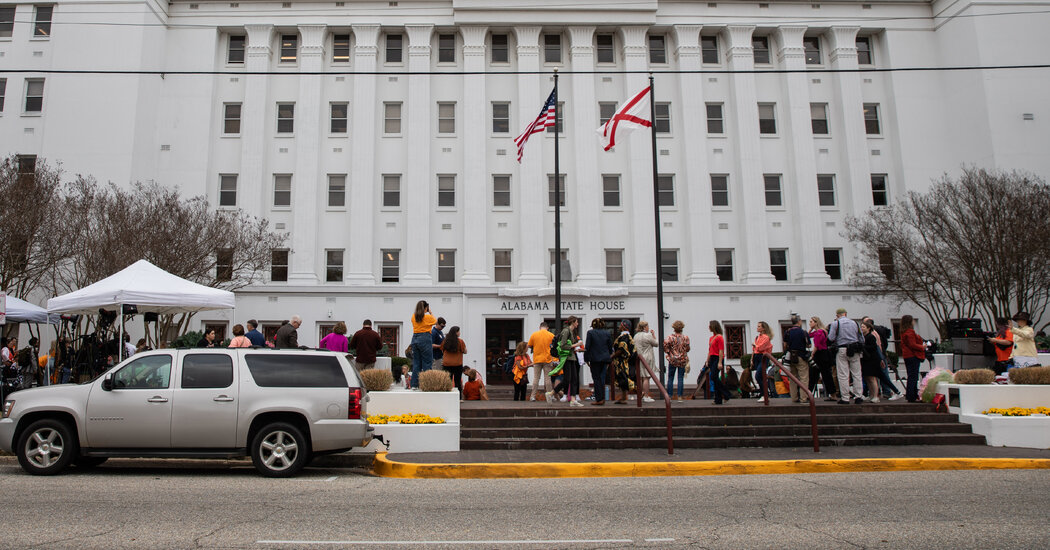Two Alabama families at the center of the wrongful-death lawsuit that led to the temporary suspension of in vitro fertilization procedures in the state have asked a judge to overturn a new law that shields clinics and doctors from civil and criminal liability.
Their challenge to the law raises the possibility that access to I.V.F. could once again be placed in jeopardy in Alabama. And it could further inflame tensions across the country over whether to enshrine protections for I.V.F., as influential Christian conservatives look to curb the use of the popular reproductive treatment.
Alabama lawmakers quickly pushed through the shield law in early March after the State Supreme Court weighed in on the lawsuit and ruled that frozen embryos could legally be considered children. The families had filed the claim over the accidental destruction of their embryos at a Mobile clinic in 2020.
Multiple clinics had shuttered to avoid the threat of legal challenges, adding to the emotional, financial and physical toll of infertility for Alabama families suddenly left in medical limbo.
The swift passage of the shield law led clinics to reopen and restart embryo transfers. But the law did not explicitly address the legal question of “fetal personhood” raised by the State Supreme Court opinion, and many in the Republican-dominated Legislature acknowledged they would very likely need a more permanent solution.
This week, after the clinic asked for the wrongful-death lawsuit to be dismissed, the families argued that the shield law was a violation of their constitutional rights, including equal protection, due process and the Alabama Constitution’s “guarantees of life, the right to bear children and the right to a remedy for wrongful deaths of such children.”
“Medical mistakes happen,” the families’ lawyers wrote. “People suffer grievously when they do. Our Legislature should not have rushed to judgment and conferred blanket civil or criminal immunity.”
The families argued that because Alabama voters had voted to “recognize and support the sanctity of unborn life and the rights of unborn children,” in the State Constitution, another constitutional amendment was the only recourse for changing the shield law.
It is possible that the case winds up back before the State Supreme Court, where Chief Justice Tom Parker, in his final term, delivered a fiery, theological opinion that warned “human life cannot be wrongfully destroyed without incurring the wrath of a holy God.”
The new challenge to the shield law comes as Southern Baptists, the country’s largest Protestant denomination, voted this week to oppose the use of I.V.F. at their national conference. The public policy arm of the Southern Baptist Convention previously asked the state’s Republican governor, Kay Ivey, to veto the law as “a rash reaction to a troubling situation.”
I.V.F. has also become a fraught political issue for Republicans, who have struggled to reconcile their longstanding belief that life begins at conception with overwhelming support for I.V.F. treatments. Democrats have sought to tie the fall of Roe v. Wade and the end of the constitutional right to an abortion with the efforts to more widely curb access to reproductive medicine.
Senator Katie Britt, one of Alabama’s two Republican senators, is among the conservatives who have sought to counter arguments that the party does not support reproductive medicine, championing legislation that would block Medicaid funding to any state that bans I.V.F. treatment.
But efforts to fast-track that bill, as well as a Democratic-led push to advance a separate measure that would codify access to fertility treatments, failed this week in the U.S. Senate. And while Republicans in Montgomery, Washington and across the campaign trail have scrambled to reiterate their support for I.V.F., the anti-abortion movement has also moved to curb how fertility treatments are used across the country.
Alain Delaquérière contributed research.



